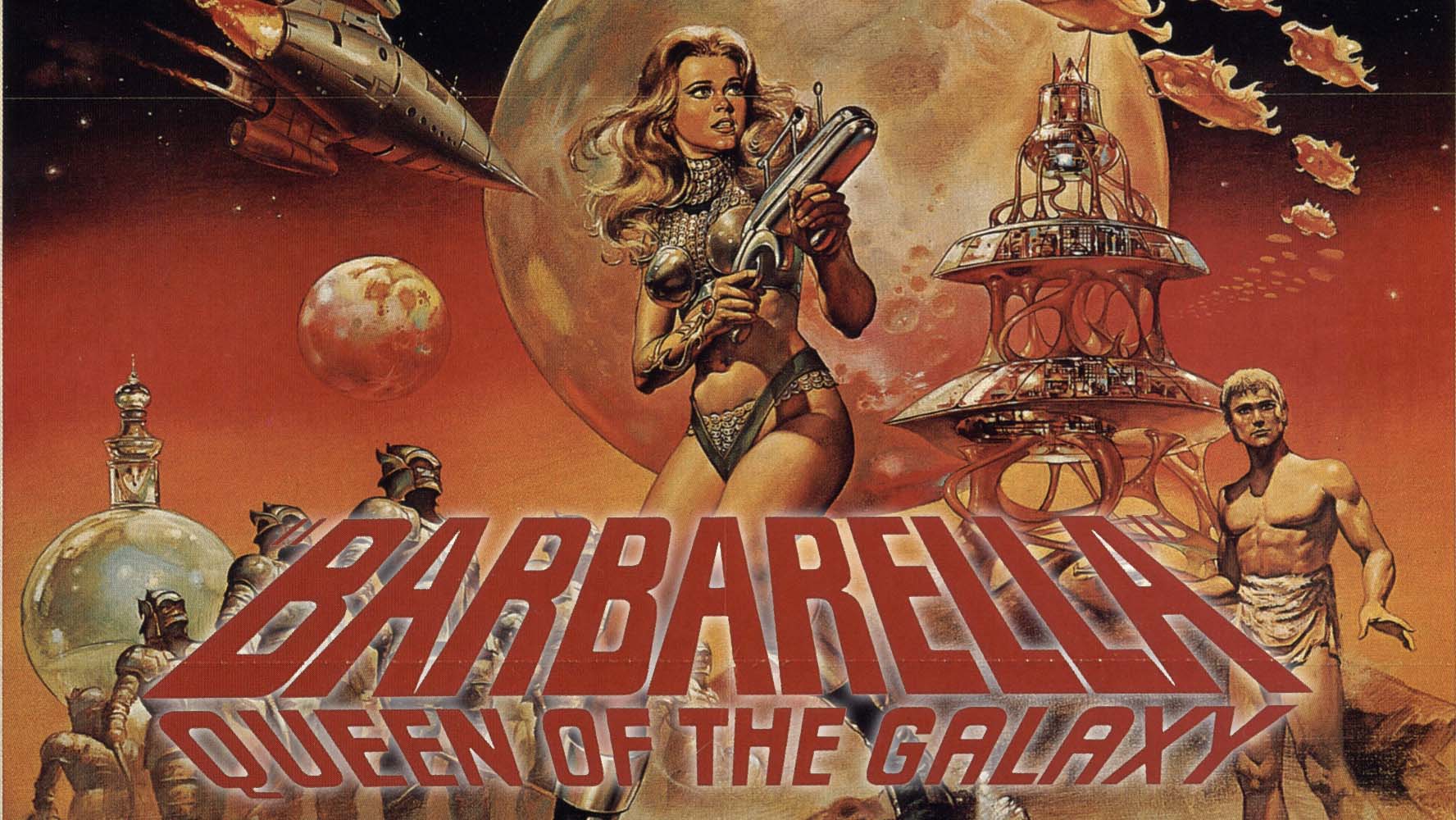
Last time on A History of Science Fiction, we covered the pulp era of the early 1900s and some of the most famous early modernist works in the SciFi genre, including George Orwell’s 1984. This time, we’re talking about the Golden Age of Science Fiction: where the genre was strictly what’s referred to as ‘Hard SF’, with heroes solving problems and squashing threats in linear narratives, in the context of a space-opera or technologically-based adventure. It was at this time in history that SciFi became popular with the general public.
In 1939, the first Worldcon, or World Science Fiction Convention was held. It has been held every year since with the exception of 1942 to 1945, when World War II was raging. It was the precursor to other fan conventions throughout the world, and featured early cosplay, autographing sessions, art shows, exhibits, fan tables, and an independent film festival. Thousands turned up. It was clear that Science Fiction was gaining a foothold in the psyche of the general public, and from 1939 to the late 1950s, the genre entered a lucrative golden age.
Astounding Magazine
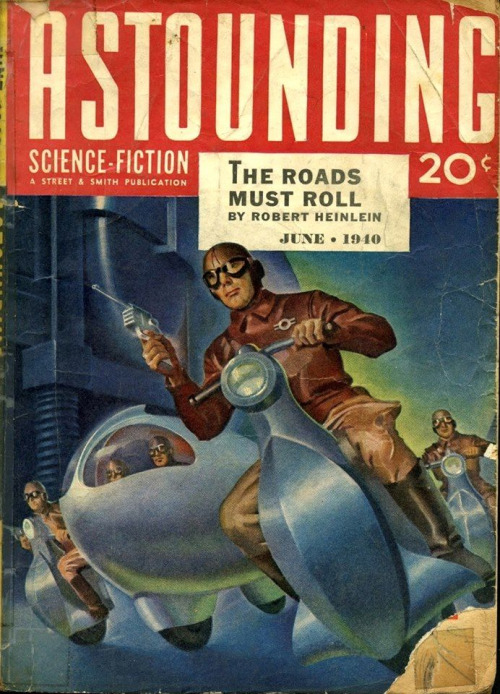
“…in the 1940s, [Campbell] dominated the field to the point where to many [he] seemed [to be] all of science fiction.” – Isaac Asimov
You could say it all began with the publication of Astounding Science Fiction magazine in 1940. Astounding was led by John W. Campbell. Campbell was responsible for grounding the genre in realism, and for adding literary and psychological depth to the characters in the stories. At first, Science Fiction had been all about the science. Under Campbell, the focus shifted to the plotlines and the characters.
Astounding Science Fiction was where many got their first glimpse of famous authors like A. E. van Vogt, Isaac Asimov, and Robert A. Heinlein. All in all, Astounding magazine created space in the literary market for SciFi writers to get their stories in the hands and homes of readers everywhere.
Notable Works
The year of 1956 was just a good year for science fiction. It was in this year that both the famous film Invasion of the Body Snatchers, and the iconic Forbidden Planet, or Fatal Planet were produced. Both are considered two of the greatest science fiction films of the 1950s and precursors to many other science fiction films.
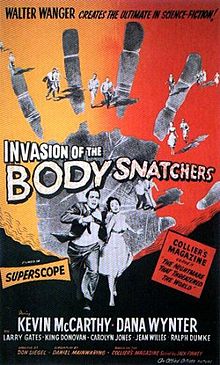
Invasion of the Body Snatchers dealt with hot topics, with the dangers facing America. The themes revolve around the the dangers of conformity and the fear of the loss of personal autonomy found in communist systems. David Wood said of it: “The sense of post-war, anti-communist paranoia is acute, as is the temptation to view the film as a metaphor for the tyranny of the McCarthy era.” Others have called it one of the most complex SciFi-horror films ever made. There is little doubt that Invasion of the Body Snatchers is not simply some bizarre old film. Rather, it’s an important window into the concerns of the time in which it was made.
Forbidden Planet was absolutely groundbreaking. The film was the first to portray a robot as a character, rather than just a hunk of functional metal. The creators of later science fiction cult classics like Star Trek, Doctor Who, and Babylon 5 all drew on the old film for inspiration, and the science fiction video game Mass Effect even has a Forbidden Planet reference. The Library of Congress’ National Film Registry called it “culturally, historically, and aesthetically significant”.
One could hardly talk about the Golden Age of SciFi without talking about Isaac Asimov’s contributions. His short story “Nightfall” was voted the best science fiction short story ever written. “Nightfall” was a prime example of popular themes of the Golden Age. Writers were returning to old themes of the genre, like the sense of wonder, exploration of the human condition, and celebration of man’s scientific achievement.
Perhaps Asimov’s most indirectly famous work, however, is not “Nightfall”, but the story, I, Robot, written in 1950. I, Robot is the basis for not only the popular Will Smith movie of the same name, but the root to which all other later robotics-based science fiction can be traced. Asimov, after all, was responsible for developing the Three Laws of Robotics.
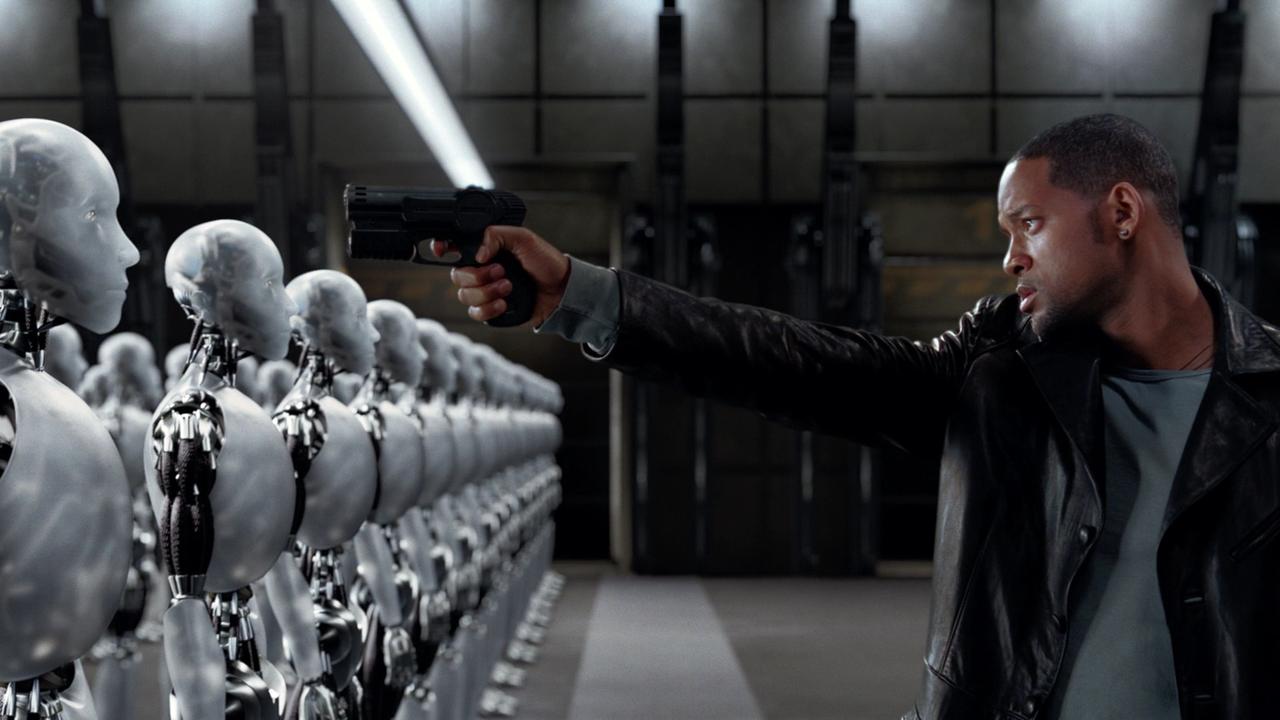
- A robot may not injure a human being or, through inaction, allow a human being to come to harm.
- A robot must obey orders given it by human beings except where such orders would conflict with the First Law.
- A robot must protect its own existence as long as such protection does not conflict with the First or Second Law.
This set of ethics has had an immense influence on all other science fiction writers who have attempted to deal with robotics since.
Galaxy Magazine
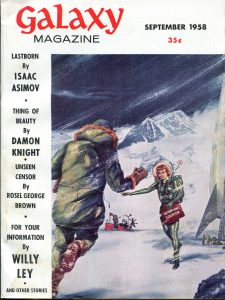
As the 1950s progressed, more and more magazines came to rival Astounding Science Fiction. The most notable of these is Galaxy Magazine. Galaxy Magazine was the leading competitor of Astounding Science Fiction. It was intended to attract readers of all types. The editorial requirements were much more broad than Astounding’s, and much more interested in so-called “soft sciences”, like sociology and psychology.
It was, you could say, meant to be the science fiction magazine for “classy” people. As the editor said, he disliked most of the pulpy science fiction covers, and was interested in creating a magazine that Mike Ashley described as “[one] you were not embarrassed to hold”.
Galaxy was the first place where the famous work Fahrenheit 451 was published, and was also the home of Robert Heinlen’s The Puppet Master. By its second year, it surpassed Astounding as the leading SF magazine.
The End of the Golden Age
The Golden Age of Science Fiction did not go out with a bang. As such, it’s hard to pin down when exactly it ended. Most people attribute it to an inflated Pulp market. Many magazines simply died out, leaving the genre almost invisible to the general population and largely unmarketable as well.
However, when Sputnik 1 launched in October of 1957, the public once again regained interest in scientific achievement and all that meant for the future. The genre re-emerged in what would be called “The New Wave”. Authors had to be bolder, they had to expand their horizons. Scientific achievement was now part of the everyday newspaper headlines. So, they shifted their focus away from the achievements themselves. For the first time, Science Fiction became less about the actual science, and more about the future of the human race. It was a monumental shift, and the genre has never been the same.